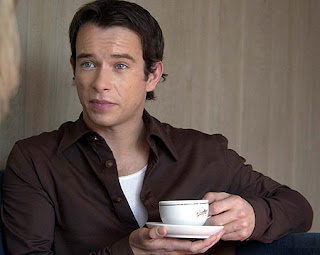After a great deal of somewhat scattergun controversy, BBC1’s Question Time was finally broadcast this evening. The programme usually manages to keep its nose clean but, on this occasion, it had extended an invitation to the leader of the British National Party, Nick Griffin. Called upon to justify the invitation, the BBC Director-General, Mark Thompson, wrote in the morning’s Guardian that “the BNP has demonstrated a level of support that would normally lead to an occasional invitation”.
An earlier leader in the paper disagreed. “The British National Party will be handed a gift … a specious legitimacy” it declared. Peter Hain, a veteran of the anti-apartheid movement as well as a British cabinet minister, went in for more overheated language: “The BBC will be showcasing the BNP”. Hardly, Peter. A letter-writer complained of the BBC giving the party “the oxygen of publicity”. Well, the company one keeps is instructive and quoting Thatcher suggests a wish to censor, ban and suppress unwelcome views (of any kind) rather than to confront perceived fascism.
I wholly support the BBC’s invitation to Griffin for one simple reason: I am a democrat. You can’t allow people to run for office and then deny them the access that such office ordinarily confers. Other minority parties have done their turn on Question Time once they have elected representatives. If you support democracy, you must accept the results it throws up. George W Bush had to face that, to his chagrin, when the Palestinians voted Hamas into power.
On this matter, then, I found myself in alarming agreement with Kelvin McKenzie who said on the news that the BBC could not be found to be at fault for inviting Griffin and that if you wanted to blame anyone, you had to blame the electorate.

Hain and – takes a nice picture, doesn't he – Griffin; from Guardian website
In his piece, Hain tried to absolve the electorate by implying they were ignorant. “At the European elections that triggered this BBC decision,” he wrote, “many voted for the BNP as a protest against the mainstream parties at the height of the MPs’ expenses scandal. Few of these voters would recognise, still less endorse, the BNP’s virulent racism”.
I wouldn’t be so sure. Whether you like it or not, there is still plenty of barely expressed racism around. When the MPs’ expenses are forgotten, there will still be people voting for the BNP and Hain will have to find another rationale. What Griffin aims to do is to harness that racism, make it seem respectable and hone it into a real political force.
Fortunately for us, Griffin is not an inspiring, charismatic, eloquent or even coherent leader. His positions are – on the evidence of this “showcase” – both confused and shifting. He is apt to pluck assertions out of the air that he cannot back up with evidence, rhetoric or homework. His attempts to be genial and apparently ready to laugh at himself are cheesy and unpersuasive. There is a natural constituency of Neanderthals who would happily back him if he couldn’t pronounce his own name – we glimpsed a selection of them playing at being his henchmen in news footage of his arrival at Television Centre – but, on the evidence of his performance on Question Time, it’s hard to imagine that a significant number would be moved to throw in their lot with him.
Mind you, if the impression of the entire establishment ganging up on him did him any favour, he could certainly look upon his appearance with considerable satisfaction. The mainstream politicos on the panel scrambled to get the most wounding pre-emptive strike in first. And, as it panned out, the programme’s focus was very heavily on Griffin, out of step on everything with everyone, not least on the only non-BNP-oriented question, which was about Jan Moir’s article on Stephen Gately. The BNP doesn’t do gay solidarity (though if Griffin cares to look at the history of the far right in Britain and elsewhere, he may find much that would not be to his taste in the sexual shenanigans department).
Amusingly, according to the OED, a griffin, as well as being a winged monster, is “a European newly arrived in India, and unaccustomed to Indian ways and peculiarities; a novice, new-comer, greenhorn” and also “a mulatto”. Perhaps Griffin was fated to spend his life struggling against what he sees as the diminution of the power of “indigenous people” of Britain. In allying that struggle to his denunciation of Islam as “wicked and vicious”, of the major parties for their policies on Iraq, Afghanistan and Iran, and of Hamas – he claims his is the only party unequivocally supportive of Israel – he may well have struck some chords. Wisely, the other panellists did not engage him very far on these issues.
In the event, the programme was fairly even-tempered. There had been dark anticipations of braying racists and anti-fascists in the studio but the Question Time audience is much more carefully vetted than its equivalent on Radio 4’s Any Questions? Indeed, only one (pretty innocuous) speaker from the floor appeared to be at all supportive of Griffin.
It was a different story at the gates of Television Centre where angry demonstrators breached the security cordon. This is not too difficult: David Cassidy fans managed it in the early 1970s. BBC News made great play of the build-up to the transmission, so much so that three (count ‘em) reporters were deployed to the TC gates for the 6.00 pm bulletin. Well, I suppose it was nice for them to get out of the office. I just hope they didn’t put in for excessive expenses.










